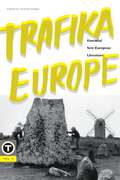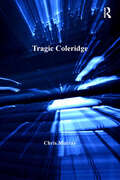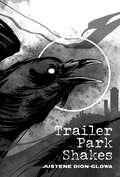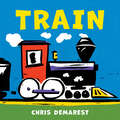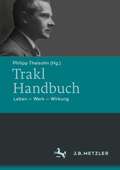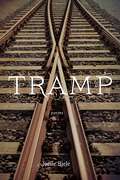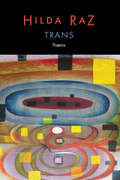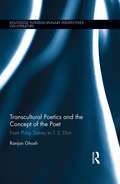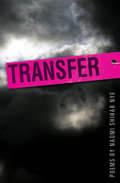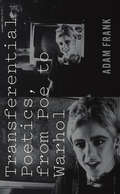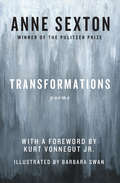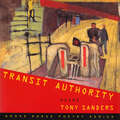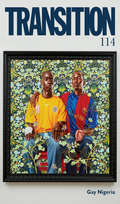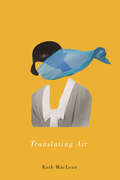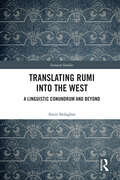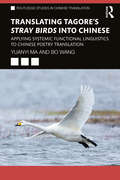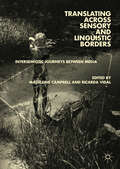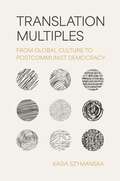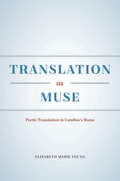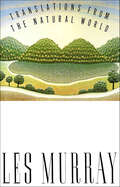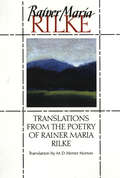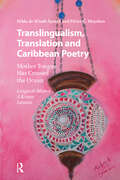- Table View
- List View
Trafika Europe: Essential New European Literature, Vol. 1
by Andrew SingerIn volume 1 of Trafika Europe, Andrew Singer gathers choice offerings from the first year of the quarterly journal of the same name. These fourteen selections—from seven women and seven men, seven poets and seven fiction writers—represent languages across the Continent, from Shetland Scots and Occitan, Latvian and Polish, Armenian, Italian, Hungarian, German, and Slovenian to Faroese and Icelandic. With some of the most accomplished writing in new translation from Europe today, this volume opens a window onto some emerging contours of European identity. Former ASCAP director of photography Mark Chester complements the writing with sumptuous black-and-white photos.The contributors are Vincenzo Bagnoli, Ewa Chrusciel, Christine DeLuca, Mandy Haggith, Stefanie Kremser, Aurélia Lassaque, Wiesław Myśliwski, Jóanes Nielsen, Edvīns Raups, László Sárközi, Marko Sosič, Jón Kalman Stefánsson, Nara Vardanyan, and Māra Zālīte.
Trafika Europe: Essential New European Literature, Vol. 1
by Andrew SingerIn volume 1 of Trafika Europe, Andrew Singer gathers choice offerings from the first year of the quarterly journal of the same name. These fourteen selections—from seven women and seven men, seven poets and seven fiction writers—represent languages across the Continent, from Shetland Scots and Occitan, Latvian and Polish, Armenian, Italian, Hungarian, German, and Slovenian to Faroese and Icelandic. With some of the most accomplished writing in new translation from Europe today, this volume opens a window onto some emerging contours of European identity. Former ASCAP director of photography Mark Chester complements the writing with sumptuous black-and-white photos.The contributors are Vincenzo Bagnoli, Ewa Chrusciel, Christine DeLuca, Mandy Haggith, Stefanie Kremser, Aurélia Lassaque, Wiesław Myśliwski, Jóanes Nielsen, Edvīns Raups, László Sárközi, Marko Sosič, Jón Kalman Stefánsson, Nara Vardanyan, and Māra Zālīte.
Tragic Coleridge
by Chris MurrayTo Samuel Taylor Coleridge, tragedy was not solely a literary mode, but a philosophy to interpret the history that unfolded around him. Tragic Coleridge explores the tragic vision of existence that Coleridge derived from Classical drama, Shakespeare, Milton and contemporary German thought. Coleridge viewed the hardships of the Romantic period, like the catastrophes of Greek tragedy, as stages in a process of humanity’s overall purification. Offering new readings of canonical poems, as well as neglected plays and critical works, Chris Murray elaborates Coleridge’s tragic vision in relation to a range of thinkers, from Plato and Aristotle to George Steiner and Raymond Williams. He draws comparisons with the works of Blake, the Shelleys, and Keats to explore the factors that shaped Coleridge’s conception of tragedy, including the origins of sacrifice, developments in Classical scholarship, theories of inspiration and the author’s quest for civic status. With cycles of catastrophe and catharsis everywhere in his works, Coleridge depicted the world as a site of tragic purgation, and wrote himself into it as an embattled sage qualified to mediate the vicissitudes of his age.
Trailer Park Shakes
by Justene Dion-Glowa2023 Indigenous Voices Awards ShortlistThe poems in Trailer Park Shakes are direct and vernacular, rooted in community—a working-class Métis voice rarely heard from. These poems, while dreamlike and playful, bear unflinching witness to the workings of injustice—how violence is channeled through institutions and refracted intimately between people, becoming intertwined with the full range of human experience, including care and love. Trailer Park Shakes is a book that seems to want to hold everything—an entire cross-section of lived experience—written by a poet whose courage, attention, and capacity to trace contradiction inspire trust in her words' embrace. Dion-Glowa's poems are quietly philosophical, with a heartfelt, self-possessed politic. "Dion-Glowa's voice crackles with frank, startling insight." — Sachiko Murakami, author of Render "A collection that should and will rattle your cage and shine a light where it is needed." — John Brady McDonald, author of Kitotam
Train
by Chris DemarestIt&’s all aboard for baby&’s first train book! From the author of Plane, Bus, Ship, and Firefighters A to Z. Train chugs, Clickity-clack.Engine up front, Caboose in back. The amazing sights of a train ride through the countryside whiz by in this deceptively simple rhyming book. Little listeners will be mesmerized by this rhythmic, rhyming ride—perfect reading for kids on a roll! Praise for the books of Chris Demarest &“Creative texts and brightly colored images. The words, while spare, have been carefully chosen to create a level of anticipation and excitement for even the youngest of listeners.&”—School Library Journal on Train &“Demarest describes things seen and felt during a plane or ship ride, at the same time creating a pleasingly rhythmic, dreamy mood. Demarest&’s bold palette and unusually fluid lines lend a sophisticated, almost abstract air, furthering the impressionistic quality of the words . . . Very much a flight of fancy, this inventive melange of color, shapes and language may spur questions from youngsters beginning to wonder why the sky is blue, but the poetic trip launched here will let their imaginations soar.&”—Publishers Weekly on Plane and Ship
Trakl-Handbuch: Leben - Werk - Wirkung
by Philipp TheisohnDas Werk Georg Trakls (1887-1914) ist ebenso schmal wie bedeutend. Er gilt als Klassiker der Moderne und seine Gedichte gehören zum Kanon auch in Universität und Schule. Gleichwohl hat die Hermetik seiner Dichtung zu vielen offenen Forschungsfragen geführt. Das Handbuch stellt das Gesamtwerk dar und enthält viele exemplarische Gedichtanalysen. Darüber hinaus informiert es über Biographie, Werkkonstitution, Einflüsse und Rezeption (etwa auch Trakl-Vertonungen). Zentrale Diskurse und Topoi der Trakl-Forschung werden in Querschnitt-Artikeln erläutert. Zeittafel und umfangreiche Register beschließen den Band.
Tramp: Poems (Barataria Poetry)
by Joelle BieleUsing newspaper accounts and court records from the late nineteenth and early twentieth centuries, Joelle Biele’s poems tell the personal stories of women who left their homes and families to tramp the roads and rails. Driven by poverty, abuse, or a desire for a better life, these women often encountered misery and danger in their quest for freedom, as interviews and printed records attest. In Tramp, Biele weaves these real-life stories into poignant and insightful verse that gives us a window into previously unexplored lives.
Trans: Poems
by Hilda RazThis elegant and moving collection of poems grew out of Hilda Raz&’s experience with her son&’s journey to a transgender identity. Born Sarah, now Aaron, Raz&’s child has had a profound impact on her understanding of what it means to be a family, to be whole, and to know oneself. The collection moves between past and present, allowing Raz to reflect on her own childhood and on her experience with breast cancer to find ways to connect with Aaron. The journey takes us from intimacy to strangeness and back again, from denial to humor to grief and rage, but always laced with love and acceptance. &“Trans&” means across, through, over, to or on the other side, and beyond. This book documents some major transformations of body, self, society, and spirit that art requires and life allows. The poems are accessible and finely wrought. They are equally testaments to Raz&’s insistence on making an order out of chaos, of finding ways to create and understand and eventually accept new definitions of self and family. The physical and sensuous language of Raz&’s poems, and their humanity, keep them intimately bound to the world and to the senses.
Transcultural Poetics and the Concept of the Poet: From Philip Sidney to T. S. Eliot (Routledge Interdisciplinary Perspectives on Literature)
by Ranjan GhoshCritiquing the politics and dynamics of the transcultural poetics of reading literature, this book demonstrates an ambitious understanding of the concept of the poet across a wide range of traditions – Anglo-American, German, French, Arabic, Chinese, Sanskrit, Bengali, Urdu – and philosophies of creativity that are rarely studied side by side. Ghosh carves out unexplored spaces of negotiation and intersections between literature, aesthetics and philosophy. The book demonstrates an original method of ‘global comparison’ that displaces the relatively staid and historicist categories that have underpinned comparative literature approaches so far, since they rarely dare stray beyond issues of influence and schools, or new 'world literature' approaches that affirm cosmopolitanism and transnationalism as overarching themes. Going beyond comparatism and reformulating the chronological patterns of reading, this bold book introduces new methodologies of reading literature to configure the concept of the poet from Philip Sidney to T. S Eliot, reading the notion of the poet through completely new theoretical and epistemic triggers. Commonly known texts and sometimes well-circulated ideas are subjected to refreshing reading in what the author calls the ‘transcultural now’ and (in)fusionised transpoetical matrices. By moving between theories of poetry and literature that come from widely separated times, contexts, and cultures, this book shows the relevance of canonical texts to a theory of the future as marked by post-global concerns.
Transfer
by Naomi Shihab NyeNaomi Shihab Nye has spent thirty-five years traveling the world to lead writing workshops and inspire students of all ages. In her newest collection Transfer, she draws on her Palestinian American heritage, the cultural diversity of her home in Texas, and her extensive travel experiences to create a poetry collection that attests to our shared humanity. Among her awards, Naomi Shihab Nyehas been a Lannan Fellow, a Guggenheim Fellow, and a Witter Bynner Fellow. She has received a Lavan Award from the Academy of American Poets, the Isabella Gardner Poetry Award, the Paterson Poetry Prize, and four Pushcart prizes. In January 2010, she was elected to the board of chancellors of the Academy of American Poets.
Transfer (American Poets Continuum #128.00)
by Naomi Shihab Nye"In the current literary scene, one of the most heartening influences is the work of Naomi Shihab Nye. Her poems combine transcendent liveliness and sparkle along with warmth and human insight. She is a champion of the literature of encouragement and heart. Reading her work enhances life."— William Stafford Dusk where is the name no one answered to gone off to live by itself beneath the pine trees separating the houses without a friend or a bed without a father to tell it stories how hard was the path it walked on all those years belonging to none of our struggles drifting under the calendar page elusive as residue when someone said how have you been it was strangely that name that tried to answer Naomi Shihab Nye has spent thirty-five years traveling the world to lead writing workshops and inspire students of all ages. In her newest collection Transfer she draws on her Palestinian American heritage, the cultural diversity of her home in Texas, and her extensive travel experiences to create a poetry collection that attests to our shared humanity. Among her awards, Naomi Shihab Nye has been a Lannan Fellow, a Guggenheim Fellow, and a Witter Bynner Fellow. She has received a Lavan Award from the Academy of American Poets, the Isabella Gardner Poetry Award, the Paterson Poetry Prize, and four Pushcart prizes. In January 2010, she was elected to the board of chancellors of the Academy of American Poets.
Transferential Poetics, from Poe to Warhol
by Adam FrankTransferential Poetics presents a method for bringing theories of affect to the study of poetics. Informed by the thinking of Silvan Tomkins, Melanie Klein, and Wilfred Bion, it offers new interpretations of the poetics of four major American artists: Edgar Allan Poe, Henry James, Gertrude Stein, and Andy Warhol. The author emphasizes the close, reflexive attention each of these artists pays to the transfer of feeling between text and reader, or composition and audience— their transferential poetics. The book’s historical route from Poe to Warhol culminates in television, a technology and cultural form that makes affect distinctly available to perception. The peculiar theatricality of these four artists, Frank argues, can best be understood as a reciprocal framing relation between the bodily means of communicating affect (by face and voice) and technologies of graphic reproduction.
Transformations: Poems
by Anne SextonPulitzer Prize–winning poet Anne Sexton morphs classic fairy tales into dark critiques of the cultural myths underpinning modern society Anne Sexton breathes new life into sixteen age-old Brothers Grimm fairy tales, reimagining them as poems infused with contemporary references, feminist ideals, and morbid humor. Grounded by nods to the ordinary—a witch&’s blood &“began to boil up/like Coca-Cola&” and Snow White&’s bodice is &“as tight as an Ace bandage&”—Sexton brings the stories out of the realm of the fantastical and into the everyday world. Stripping away their magical sheen, she exposes the flawed notions of family, gender, and morality within the stories that continue to pervade our collective psyche. Sexton is especially critical of what follows these tales&’ happily-ever-after endings, noting that Cinderella never has to face the mundane struggles of marriage and growing old, such as &“diapers and dust,&” &“telling the same story twice,&” or &“getting a middle-aged spread,&” and that after being awakened Sleeping Beauty would likely be plagued by insomnia, taking &“knock-out drops&” behind the prince&’s back. Deconstructed into vivid, visceral, and often highly amusing poems, these fairy tales reflect themes that have long fascinated Sexton—the claustrophobic anxiety of domestic life, the limited role of women in society, and a psychological strife more dangerous than any wicked witch or poisoned apple.
Transit Authority: Poems (Grove Press Poetry Series)
by Tony SandersThe prize-winning poet and author of Partial Eclipse continues his investigation of urban metaphysical pathos in this collection.Transit Authority is made up of three sequences that mark the early and late junctures of the twentieth century: the first, a series of poems that investigate the early part of the century; the second, meditations based on the 1930s photographs by Berenice Abbott; and the third, “Reckoning,” in which, with spare lyricism, Sanders meditates on where this century has brought us.Sanders looks with rueful intrigue at a landscape inundated with near misses and has-beens. While it is tempting to turn away from the common predicament, his poems quietly urge us to keep looking. As the poet concludes, though “things aren’t what they should be according to the map . . . we have to press on in search of our bearings.”
Translating Air: Sessions With Freud (Hugh MacLennan Poetry Series #45)
by Kath MacLeanThe hunt over; the kill complete / limping towards perfection, padding / about the room, thorns in her thumbs / Hermes crawling on all fours – / That was the last I saw of Hilda. What is it to remember a life, to relive it, to mythologize it? Things that were said or not said haunt us for a lifetime. In Translating Air Kath MacLean imagines conversations between the modernist poet H.D. and Sigmund Freud during the poet's sessions with him in 1933 to 1934 and the dialogues that continued long afterwards in H.D.'s own mind. Shadowed by uncertainty and memory lapses or blinded by flashes of profound truth, readers are transported to a world of myth, continuity, and human connection. H.D.'s palimpsest account of herself as girl and woman, writer and Imagist, and psychic and spiritualist is engaging and elastic as it pulls readers into a space where time is both endless and sure. Questioning her sanity and a world gone mad with war, H.D.'s personal accounts help us understand what it means to love deeply, to feel passionately, and to think beyond the limits of our individual consciousness. MacLean demystifies and humanizes one of the most misunderstood modernist writers in this stunning collection. Translating Air takes us on a remarkable journey into the known and unknown and allows readers to experience one remarkable woman's struggle to get it right, to live life with dignity, hope, wisdom, and the courage to have no regrets.
Translating Rumi into the West: A Linguistic Conundrum and Beyond (Iranian Studies)
by Amir SedaghatFocusing on Rumi, the best-selling Persian mystical poet of the 13th century, this book investigates the reception of his work and thought in North America and Europe – and the phenomenon of ‘Rumimania’ – to elucidate the complexities of intercultural communication between the West and the Iranian and Islamic worlds. Presenting tens of examples from the original and translated texts, the book is a critical analysis of various dimensions of this reception, outlining the difficulties of translating the text but also exploring how translators of various times and languages have performed, and explaining why the quality of reception varies. Topics analysed include the linguistic and pragmatic issues of translation, comparative stylistics and poetics, and non-textual factors like the translator’s beliefs and the political and ideological aspects of translation. Using a broad theoretical framework, the author highlights the difficulties of intercultural communication from linguistic, semiotic, stylistic, poetic, ethical, and sociocultural perspectives. Ultimately, the author shares his reflections on the semiotic specificities of Rumi’s mystical discourse and the ethics of translation generally. The book will be valuable to scholars and students of Islamic philosophy, Iranian studies, and translation studies, but will appeal to anyone interested in the cultural dichotomies of the West and Islam.
Translating Tagore's Stray Birds into Chinese: Applying Systemic Functional Linguistics to Chinese Poetry Translation (Routledge Studies in Chinese Translation)
by Bo Wang Yuanyi MaTranslating Tagore’s ‘Stray Birds’ into Chinese explores the choices in poetry translation in light of Systemic Functional Linguistics (SFL) and illustrates the ways in which readers can achieve a deeper understanding of translated works in English and Chinese. Focusing on Rabindranath Tagore’s ‘Stray Birds’, a collection of elegant and philosophical poems, as a source text, Ma and Wang analyse four Chinese target texts by Zheng Zhenduo, Yao Hua, Lu Jinde and Feng Tang and consider their linguistic complexities through SFL. This book analyses the source text and the target texts from the perspectives of the four strata of language, including graphology, phonology, lexicogrammar and context. Ideal for researchers and academics of SFL, Translation Studies, Linguistics, and Discourse Analysis, Translating Tagore’s ‘Stray Birds’ into Chinese provides an in-depth exploration of SFL and its emerging prominence in the field of Translation Studies.
Translating across Sensory and Linguistic Borders: Intersemiotic Journeys between Media
by Ricarda Vidal Madeleine CampbellThis book analyses intersemiotic translation, where the translator works across sign systems and cultural boundaries. Challenging Roman Jakobson’s seminal definitions, it examines how a poem may be expressed as dance, a short story as an olfactory experience, or a film as a painting. This emergent process opens up a myriad of synaesthetic possibilities for both translator and target audience to experience form and sense beyond the limitations of words. The editors draw together theoretical and creative contributions from translators, artists, performers, academics and curators who have explored intersemiotic translation in their practice. The contributions offer a practitioner’s perspective on this rapidly evolving, interdisciplinary field which spans semiotics, cognitive poetics, psychoanalysis and transformative learning theory. The book underlines the intermedial and multimodal nature of perception and expression, where semiotic boundaries are considered fluid and heuristic rather than ontological. It will be of particular interest to practitioners, scholars and students of modern foreign languages, linguistics, literary and cultural studies, interdisciplinary humanities, visual arts, theatre and the performing arts.
Translation Multiples: From Global Culture to Postcommunist Democracy
by Kasia SzymanskaA new genre of writing demonstrating that translation is neither a transparent medium nor a secondary form of literatureIn Translation Multiples, Kasia Szymanska examines what happens when translators, poets, and artists expose the act of translation by placing parallel translation variants next to one another in a standalone work of art, presenting each as a legitimate version of the original. Analyzing such &“translation multiples&” as a new genre of writing, Szymanska explores how an original text can diverge into variants, how such multiplicity can be displayed and embraced, and how the resulting work can still be read as a coherent text. To do so, she focuses on contemporary projects in two different contexts—Anglophone experimental practices and post–1989 Poland&’s emergence into democracy—while viewing them against the backdrop of twentieth-century cultural and political developments.Szymanska first takes a broad look at Anglophone global culture, debunking the myth of translation as a transparent medium and an unoriginal, secondary form of writing. She then turns to postcommunist Poland, where projects introducing multiple translation variants with different ideological readings offered an essential platform for pluralist political discussion. She examines in particular an elaborate metatranslation of &“La Marseillaise&”; a triple rendering of Anthony Burgess&’s novel A Clockwork Orange; and a quadruple book of Bertolt Brecht&’s poetry with distinct readings by four translators. She argues that the creators of such multiples want to tell their own stories—personal, critical, visual, or political. Showing why multiple translations matter, Szymanska calls for a redefined practice of reading translations that follows the ethics of the multiple.
Translation as Muse: Poetic Translation in Catullus's Rome
by Elizabeth Marie YoungPoetry is often said to resist translation, its integration of form and meaning rendering even the best translations problematic. Elizabeth Marie Young disagrees, and with Translation as Muse, she uses the work of the celebrated Roman poet Catullus to mount a powerful argument that translation can be an engine of poetic invention. Catullus has long been admired as a poet, but his efforts as a translator have been largely ignored. Young reveals how essential translation is to his work: many poems by Catullus that we tend to label as lyric originals were in fact shaped by Roman translation practices entirely different from our own. By rereading Catullus through the lens of translation, Young exposes new layers of ingenuity in Latin poetry even as she illuminates the idiosyncrasies of Roman translation practice, reconfigures our understanding of translation history, and questions basic assumptions about lyric poetry itself.
Translations from the Natural World: Poems
by Les MurrayThe centerpiece of this collection of poems is "Presence," a sequence of forty "translations from the natural world" about a variety of settings and their amazing denizens. Lyre birds, honeycombs, sea lions, possums, all act as spurs for Murray's protean talent for description and imitation."Even with a score of volumes and a king's ransom of literary honors to his credit, Australian poet Murray refuses to take words for granted. His latest collection is a forceful blend of formalism and experimentation, a test of imagination, ear, and tongue for both poet and reader." - Library Journal
Translations from the Poetry of Rainer Maria Rilke
by Rainer Maria Rilke M. D. NortonBorn in 1875, the German lyric poet Rainer Maria Rilke published his first collection of poems in 1898 and went on to become renowned for his delicate depiction of the workings of the human heart. These translations by M.D. Herter Norton offer Rilke's work to the English-speaking world in an accurate, sensitive, modern version.
Translingualism, Translation and Caribbean Poetry: Mother Tongue Has Crossed the Ocean
by Pieter C. Muysken Hilda Windt AyoubiLinguists estimate that around 7,000 languages exist, but many are under threat. Translingualism, Translation and Caribbean Poetry is a multi-language collection comprising over fifty translations of the poem 'Lenga di mama' ('Mother Tongue') by Curaçao-born poet Hilda de Windt Ayoubi, published here alongside three additional poems each providing a different perspective on the mother tongue. De Windt Ayoubi's sharp, socially charged poetry has inspired translations from across the world. Collected here for the first time, they serve to protect the native languages and cultures – particularly the minority languages – of their translators, who range from expert linguists to speakers of underrepresented languages. In his accompanying essay, Pieter C. Muysken considers the role of translation in addressing the urgent cultural concern of language loss and revitalization where he discusses bilingual translations and mass translations. Complete with maps, language profiles, interviews with the translators, and the poet’s essay on Papiamento, this collection explores the emotional, cultural and intellectual importance of language conservation through poetry and translation.
